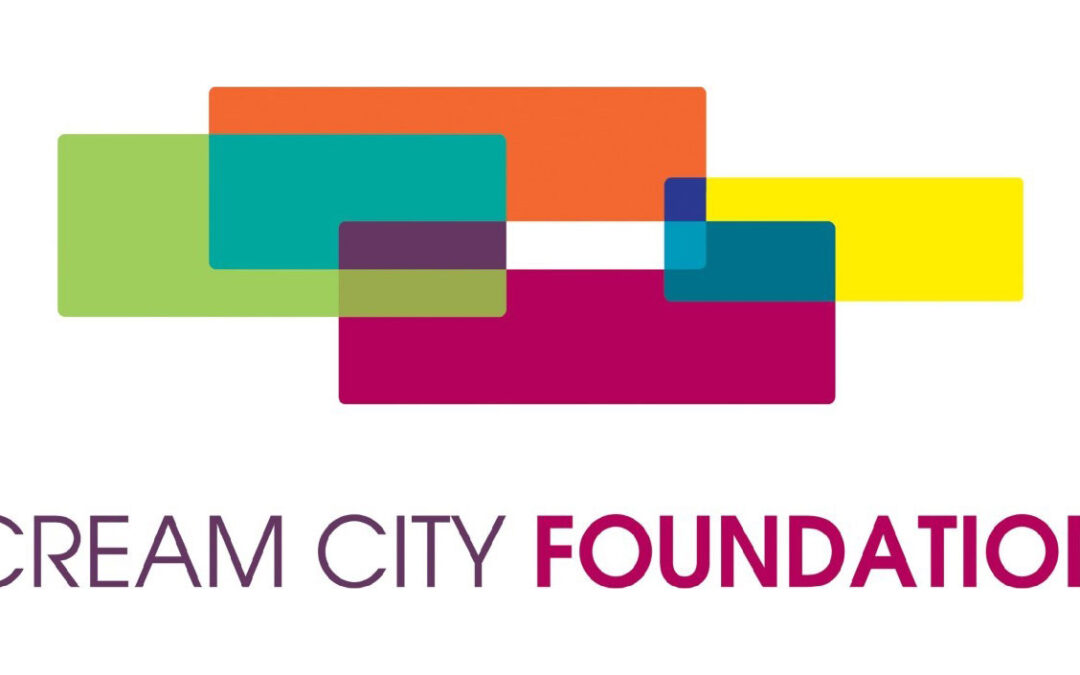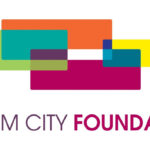Ronnie Grace spent roughly 40 years fighting HIV and at least half of those years advocating for others living with the virus. His crusade and the energy that surrounds it continues. Ronnie’s longevity and outright refusal to deny himself or his community would outweigh racial prejudice, homophobia, and a plethora of his own health issues. In the end, none of these obstacles mattered. Ronnie’s legacy speaks for itself, and like any other job well done, his impact will be felt for generations.
The Fight Begins
Sometime in the early 80s, Ronnie may have heard about a disease called GRID. Labeled GRID for Gay-Related Immunodeficiency, doctors across the nation were struck by this serious immune disorder that appeared to affect primarily “male homosexuals.” By the mid-80s Ronnie’s own diagnosis was clear. Now called HIV for Human Immunodeficiency Virus, Ronnie received his first positive result in Los Angeles while working as a dance instructor for Fred Astaire Studios.
Being in the best physical health of his life, Ronnie later told me he assumed his positive result was a lab error at UCLA. In the early years, the university processed all serum samples and erroneously diagnosed a number of people with HIV. Because he was in overall good health and hadn’t noticed any symptoms, Ronnie thought that he couldn’t have the virus and that he had to be one of those affected by the mix-up. Years later, he would retest in Atlanta. That positive result would be given to him over the phone without counseling (or, frankly, concern). He received a “We’re sorry,” and likely a dial tone.
After his second diagnosis, Ronnie was living in Atlanta and battling numerous opportunistic infections. He’d gone missing after having “escaped” (his words, not mine) from a hospital in Georgia. His mother gathered his brothers and told them to “go get my baby and bring him home” and that he “wasn’t going to die alone.” They had no idea, but in that moment his mother—his family—not only saved Ronnie’s life, but they saved mine, too. I live in the home that Ronnie Grace helped build. I am forever humbled by his love and dedication to our community and by his contributions to end HIV.
What Brings You Into This Work?
I met Ronnie Grace in the summer of 2011. At that time, I was a prospective employee at Diverse & Resilient and became acquainted with Ronnie and the organization’s HIV Testing Program through Kofi Short. On my first day with the organization, I remember navigating a maze of hallways and countless staff introductions and until finally I met Ronnie Grace. His office was in the rear of the building, its cold seclusion juxtaposed against the warmth of the man I was standing in front of.
“Chris” Kofi said, “I’d like you to meet Ronnie Grace.”
“Hey, Baby!” he said in only the way that he could. “Welcome to D&R. Nice to meet you.”
“Thank you,” I replied.
We continued with formalities as multiple others entered the room. I met another Chris, a Katie, a Jacob, and a Dylan, too. Names and faces flew by as I tried to put on my best impression. This was the nicest job I had thus far, and I wasn’t going to make any enemies.
“All right you all, I’m going to ask that you excuse us for a second. Me and Mr. Chris need to have a little conversation,” Ronnie said.
The others hurriedly made their exit, and Ronnie and I were alone.
“Well, tell me about yourself and what brings you into this work?”
Living With the Virus
I hadn’t prepared myself for this conservation. Although I had interviewed for this position and answered this question numerous times before, I knew that Ronnie was seeking a deeper meaning—one which I was ill-prepared to give. I didn’t know where to start. Did I begin with my troubled childhood, being abandoned by my parents as they chased partners (literally) all over the world? Did I start with stories of being bullied and the loneliness that consumed my younger years? Where should I start? What should I say?
In my mind this would work like it did on television. Ronnie would escort me into his office (me, a recent divorcee a la Mary Tyler Moore) and ask me if I’m Catholic and if I can type. I’d tell him that his questions were inappropriate and then he would exclaim, “Chris, you’ve got spunk.” I imagine all of this happening simultaneously as he pulls two glasses out of his desk (with ice of course), a bottle of blended scotch, and the details of our organization’s 403b plan.
Instead, we sat less than two feet from one another in complete silence, the room full of his energy and warmth. I can’t remember exactly what I said, but it would take months to finally reveal that I, too, was living with HIV. That during my freshman year in college a disease that I hadn’t even considered would change my life forever. It would be the first and only STI I’ve ever had, and it was contracted during the first few years of my adulthood.
Ultimately, we became friends and shared stories of trials and tribulations living with the virus. I came to find out that like me, Ronnie was also raised by his grandmother. That he also remembers losing friends to the virus, and that he, too, used this position to heal himself and his community. His story was quite like mine, separated by a few decades of “change.”
The Epidemic Continues
Around the time of my own diagnosis, Milwaukee had some of the highest rates of HIV infection among Black men in the nation. Between 2005 and 2014, only four out of 10 Milwaukee residents reported being Black or African American. During this period, HIV diagnoses in Milwaukee more than doubled in young Black men who have sex with men. Four in 10 Black men who have sex with men living in Milwaukee are living with HIV. To help illustrate this statistic, that means approximately half of all gay Black men in Milwaukee are living with HIV.
While employed at Diverse & Resilient, I witnessed that a positive result always brought out Ronnie’s best. He was consoling and sincere and did everything in his power to let people know that if they took their medication and embraced a healthier lifestyle, that they, too, could live a full life. One pill a day now replaced the former, in some cases hourly, regimen that people living with HIV faced after diagnosis. Paired with recent innovations such as PrEP and scientific validation of U=U (Undetectable equals Un-Transmittable) not only was a cure in sight, but perhaps even a functional one was in place.
Through Diverse & Resilient’s Counseling, Testing and Referral program, hundreds if not thousands of young gay men (primarily those of color) were able to access HIV screening and build healthy relationships with men that not only looked like them but sounded like them, too. Ronnie and a vast network of people of all backgrounds and colors contributed to this program’s breakthrough.
Drive and Dedication
When remembering Ronnie Grace, I think of Dr. Maya Angelou’s “His Day is Done.” A tribute poem for Nelson Mandela. I’m including some of that poem here;
His day is done.
The news came on the wings of a wind, reluctant to carry its burden.
Nelson Mandela’s day is done.
The news, expected and still unwelcome, reached us in the United States, and suddenly our world became somber.
Our skies were leadened.
His day is done.
We see you, South African people standing speechless at the slamming of that final door through which no traveler returns.
Our spirits reach out to you Bantu, Zulu, Xhosa, Boer.
We think of you and your son of Africa, your father, your one more wonder of the world.
We send our souls to you as you reflect upon your David armed with a mere stone, facing down the mighty Goliath.
Your man of strength, Gideon, emerging triumphant.
Although born into the brutal embrace of Apartheid, scarred by the savage atmosphere of racism, unjustly imprisoned in the bloody maws of South African dungeons.
Would the man survive? Could the man survive?
Not only did Ronnie survive, he thrived. Born into the clutches of segregated Mississippi in 1958, scarred by racism, homophobia, physical and sexual abuse, his survival was far from guaranteed. While on this earth, Ronnie had a drive and dedication to his people that in some cases stood shoulder-to-shoulder with South Africa’s Nelson Mandela and America’s Dr. Martin Luther King Jr. Ronnie was of that caliber. He knew who he was and what he had to offer. He will be sorely missed.
I could go on forever about Ronnie’s contributions to our community and what his life means to me. Mr. Grace as I called him (again, forever the ideal secretary) left this physical world being loved by many. So many in fact, that I struggle to think of a world without him. During the final half of 2023, Ronnie revealed to us all that he had liver cancer. We spoke on the phone for hours about treatment plans and what next steps looked like. Although we never vocalized it, we were both aware that a successful treatment outcome would be unlikely. That his time on this earth was limited.
We’re Just Getting Started
“See, if Mark can’t do it, I think you would be a perfect person to represent me in these situations. I ran it by Brenda, and she agrees that I need someone who can be kind of a pit bull.”
I couldn’t help but smile even though I resented the idea of being labeled a “pit bull.” It was now 2023, and Ronnie and I hadn’t worked out of the same office in almost a decade. He needed a back-up care navigator. Someone to help navigate the appointments, drop-offs, and pick-ups of all the medications he had to take. Someone who spoke and understood medical jargon and ultimately someone who wasn’t easily intimidated by death or otherwise.
“Of course Ronnie, you know I got you in this situation. If Mark can’t do it, let me know. I’ll take a leave of absence from my job and stay with Stephanie. We’ll make this happen.”
I could feel his smile through the phone.
“Thank you, Baby, I … “
“Ronnie, let me ask you something.”
Pause. I’m sure he sensed my change in tone.
“What do you want this to look like?” I asked reluctantly. Being raised by senior citizens and in the medical field myself, I’ve confronted death numerous times. Somehow, I still found myself unable to say the words “what happens if you die.”
“Well, I’m not going to be here, that’s all,” he said rather cheekily, and we both laughed.
Over a few more conversations Mr. Grace finally vocalized his plan. He talked about pursuing treatment until he was no longer able to do so. He talked about his family and how amazing it felt being connected to so many people. He emphasized that he wanted his remembrance to be joyful and how he wanted Martha Wash’s Carry On blasting from the rafters of his life celebration. We did this, and many other things, while Ronnie was living. He worked part-time at Caroline Jazz Club in what was Milwaukee’s old warehouse district. Caroline the owner, a close friend from who knows when (Ronnie had friends wherever he went) let Ronnie use the club for his celebration. August 20 was the last time I saw him.
Ronnie, rest peacefully. Your work may be done, but we’re just getting started.























0 Comments